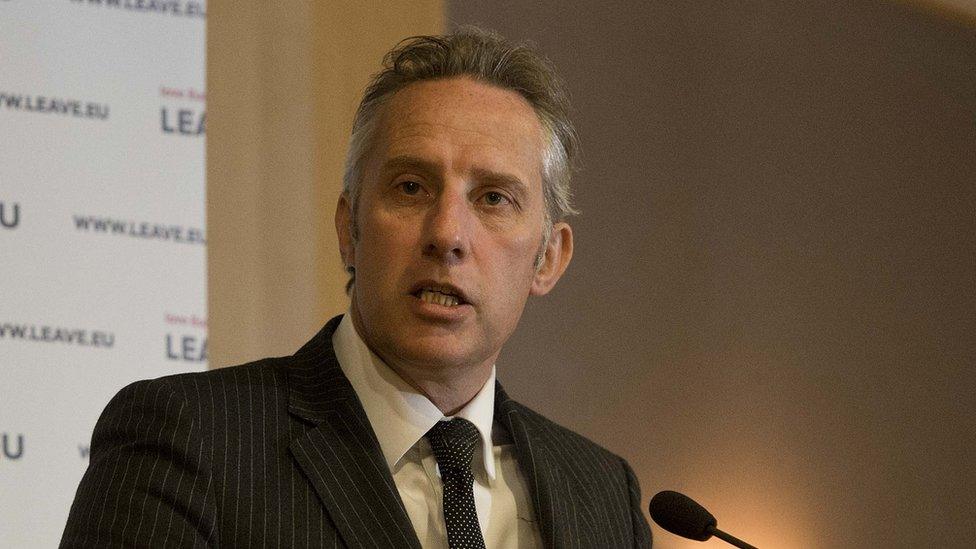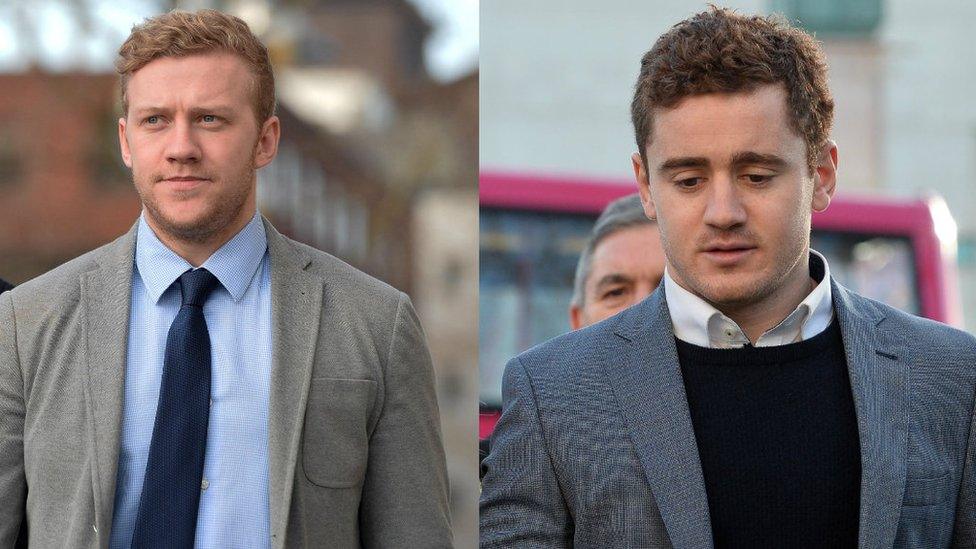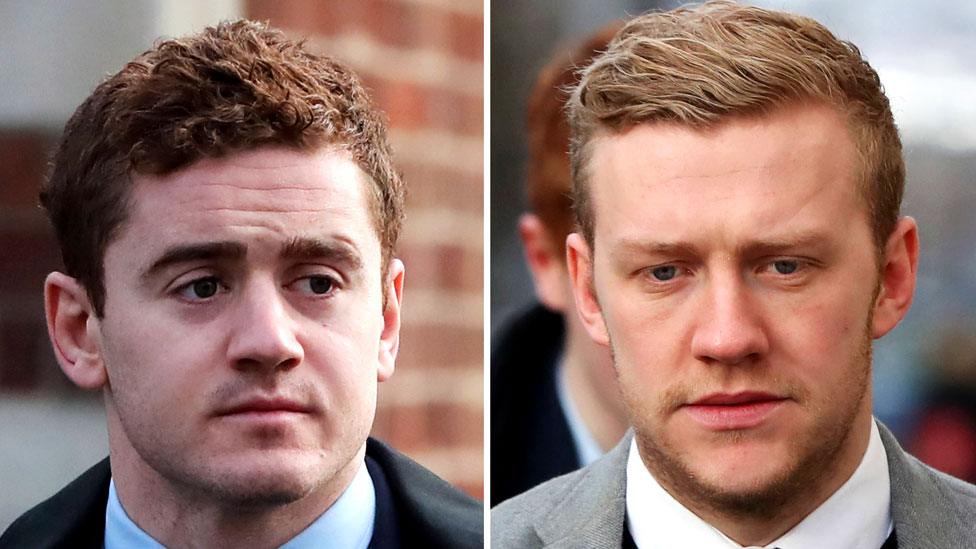Ian Paisley says rape accused should have anonymity
- Published

Mr Paisley said he will be raising his call for anonymity in parliament
People standing trial for rape should not be identified unless they are found guilty, Democratic Unionist Party (DUP) MP Ian Paisley has said.
It follows the high-profile trial of rugby players Paddy Jackson and Stuart Olding who were acquitted of rape.
Mr Paisley called for a change in the law to give the accused the same right to anonymity as a rape complainant.
But Alliance and the Greens criticised the justice system over how it treats people who report they have been raped.
On Wednesday, Mr Jackson and Mr Olding were found not guilty of raping the same woman in Belfast in June 2016.
Their friend Blane McIlroy was acquitted of exposure and another friend, Rory Harrison was also cleared of perverting the course of justice and withholding information.
The nine-week trial has sparked heated debate about the operation of the criminal justice system, media reporting of rape trials and social media reaction to live court cases.

Both Stuart Olding and Paddy Jackson were found not guilty in unanimous verdicts
Mr Paisley said he will be raising his call for anonymity in parliament.
"It is clear now - more than it has ever been - that a change to the law is required for rape trials.
"No party should be identified in advance of the verdict and only then when there is a guilty verdict.
"The notoriety caused by such publicity has a negative impact on the process of justice and lasting consequences for those involved."
The DUP MP added: "I understand those who say that publicity can bring about more evidence, especially in predator cases, but I believe that publicity after a guilty verdict can have the same effect."
'Re-traumatised'
Green Party MLA Clare Bailey also said that rape cases "should not be reported on until after the jury has given its verdict".
However, her criticism was focused on the treatment of complainants.
She said they were "re-traumatised and are treated like they are on trial".
"The criminal justice treatment and media reporting of this trial will deter victims from coming forward and reporting in the future," Ms Bailey said.
Alliance deputy leader Stephen Farry also called for a review of how the criminal justice system handles alleged sexual crimes.
"It is crucial the system works for potential victims and the interests of justice are maintained," he said.
"Compared to other types of crime, more attention tends to fall on the actions and comments of complainants, and the criminal justice system needs to ensure the right approach is found, focusing on the relevant issues while preserving the integrity of justice."
Organisations which help victims of sexual violence have also expressed concern over the impact of publicity in the case.
Nexus NI's chief executive, Cara Cash, said her organisation "respects the verdict of the jury in this trial, which has brought to light the complex nature of sexually violent crime, and consent in particular".
"This difficult case has increased dialogue around sexual violence; we now need to ensure these conversations continue and that the necessary support is provided to victims," she added.
- Published28 March 2018
